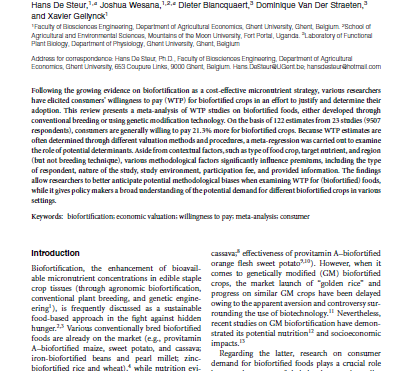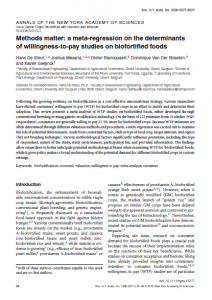Following the growing evidence on biofortification as a cost‐effective micronutrient strategy, various researchers have elicited consumers’ willingness to pay (WTP) for biofortified crops in an effort to justify and determine their adoption. This review presents a meta‐analysis of WTP studies on biofortified foods, either developed through conventional breeding or using genetic modification technology. On the basis of 122 estimates from 23 studies (9507 respondents), consumers are generally willing to pay 21.3% more for biofortified crops. Because WTP estimates are often determined through different valuation methods and procedures, a meta‐regression was carried out to examine the role of potential determinants. Aside from contextual factors, such as type of food crop, target nutrient and region (but not breeding technique), various methodological factors significantly influence premiums, including the type of respondent, nature of the study, study environment, participation fee and provided information. The findings allow researchers to better anticipate potential methodological biases when examining WTP for (biofortified) foods, while it gives policy makers a broad understanding of the potential demand for different biofortified crops in various settings.
Region: Not specific
Date published:
2016
Published by:
Annals of The New York Academy of Sciences
Type of resource:
Journal article
Resource topic:
Biofortified foods
Project/Programme: Not specific
Pest/Disease: Not specific
Pages:
13
File type:
External link (488 KB)




